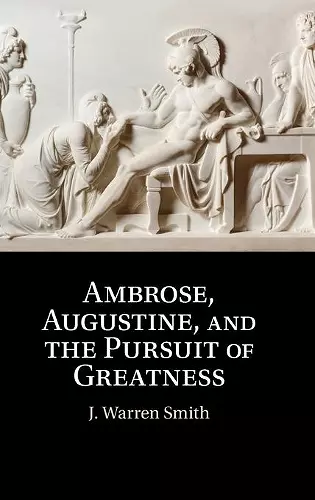Ambrose, Augustine, and the Pursuit of Greatness
Format:Hardback
Publisher:Cambridge University Press
Published:10th Dec '20
Currently unavailable, and unfortunately no date known when it will be back

Examines how Ambrose's and Augustine's theological commitments influenced their different critiques, appropriations, and modifications of virtue and greatness.
Two important theologians of early Christianity were Ambrose of Milan and Augustine of Hippo. Both were intellectually formed by philosophers, such as Cicero, who taught that virtue was the way to greatness. Yet they saw contradictions between Roman and Christian ethical ideals. Could these competing visions of greatness be reconciled?Since Aristotle, the concept of the magnanimous or great-souled man was employed by philosophers of antiquity to describe individuals who attained the highest degree of virtue. Greatness of soul (magnitudo animi or magnanimitas) was part of the language of Classical and Hellenistic virtue theory central to the education of Ambrose and Augustine. Yet as bishops they were conscious of fundamental differences between Christian and pagan visions of virtue. Greatness of soul could not be appropriated whole cloth. Instead, the great-souled man had to be baptized to conform with Christian understandings of righteousness, compassion, and humility. In this book, J. Warren Smith traces the development of the ideal of the great-souled man from Plato and Aristotle to latter adaptions by Cicero, Seneca, and Plutarch. He then examines how Ambrose's and Augustine's theological commitments influenced their different critiques, appropriations, and modifications of the language of magnanimity.
'… Smith has made a useful contribution in a complex field. His book will be read with profit by students of Latin patristic ethics and its hinterlands.' Ivor J. Davidson, Scottish Journal of Theology
ISBN: 9781108490740
Dimensions: 240mm x 160mm x 30mm
Weight: 800g
308 pages